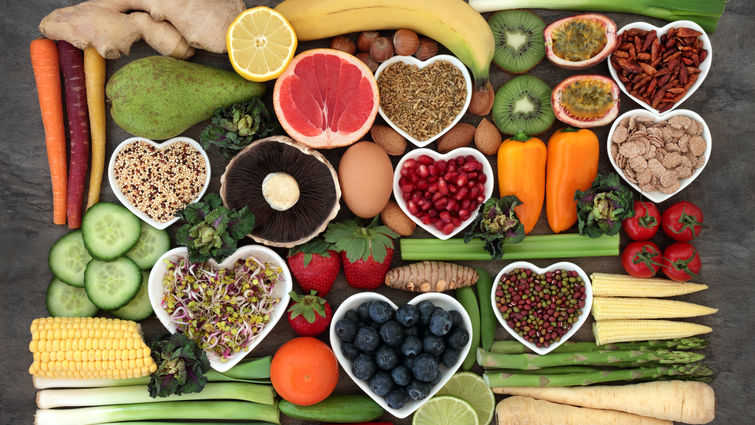
A new year often puts eating healthier at the top of many Americans’ to-do lists. For patients battling cancer, however, tackling nutrition as part of their care can be daunting, according to Loma Linda University Cancer Center dietitian Andrew Woodward, MS, RD, CSO.
“When a patient has a diagnosis of cancer, it often becomes a reality check that changes their thinking about mortality. This becomes a catalyst for making healthy eating a higher priority,” Woodward says. “However, a few patients can feel hopeless and believe nutrition won’t make a difference.”
On the contrary, nutrition plays a key role in a patient’s chances in beating cancer and improving overall quality of life. It is pertinent to understand what specific nutrition options a patient can improve during treatments and their overall journey.
“Talk to an oncology dietitian or nutritionist to determine what is important compared to internet opinions or wishful thinking,” Woodward says. “This will make clear to a patient what is unnecessarily restrictive or speculation, compared to what nutrition concepts are valuable for their particular cancer.”
In addition, Woodward offers these tips to stay on top of your nutrition and make it fun!
- Don’t call any foods “bad foods.” People tend to label some foods that are not the golden standard of healthy as “bad foods” to avoid. Yes, it is true that there are foods that can raise your risk for cancer, but Woodward wants patients to see certain foods in a different light. He encourages patients to splurge on some of their favorite foods on birthdays or special occasions so they have something to look forward to. He also recommends having some favorites in moderation or recreating a healthy version of those favorite foods so eating healthy is not a downer.
- Keep it colorful and plant-based. Plant-based options are gaining popularity in restaurants and in grocery stores, making it more accessible to the community. This is a great way to take advantage of meals already crafted for you. At home, keep your plant-based foods colorful with deep greens, vibrant reds, and yellow and purple vegetables instead of the drab brown or greys — those tend to be starches or meat.
- Include some carbohydrates. Carbohydrates are not your enemy even if some people think so when it comes to eating healthy. This macronutrient actually contains the amino acid tryptophan that helps produce serotonin in the brain that can maintain good moods, prevent depression and enhance sleep. These three things are necessities for patients battling cancer to survive the journey.
- Meal prep quick foods for those down days. After certain treatments, some patients may be fatigued or lacking energy to do anything after therapy. Woodward suggests meal prepping in advance to prepare for those days a patient may not feel up to cooking. If a patient’s energy is good and motivation is high, prepare brown rice, quinoa, potatoes and vegetables and reheat them in a glass container when you are ready.
- Try these mood-boosting foods. It is OK to include some sweet foods in your diet to sweeten your mood, Woodward says. He recommends including crunchy or salty foods with healthy hummus or dip if it makes you feel good. He also says to enjoy some chocolate — it contains a substance that can elevate the mood. However, aim for 70% cocoa solids when choosing this delectable bite.
If you or someone you know may be interested in learning more about nutrition or hearing more ideas and tips, feel free to attend the Cancer Fighting Foods cooking demonstrations and Nutrition talks provided by the Loma Linda University Cancer Center. For more information, call 1-877-558-6248.
